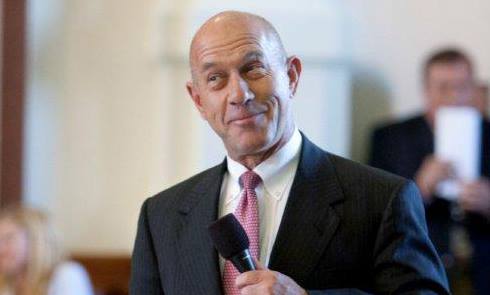Sen. John Whitmire
With just days left in this year’s regular session of the Texas Legislature, Houston-area lawmakers are fighting for a measure that would likely provide several billion dollars to expand the George R. Brown Convention Center and for other downtown projects.
“This means everything to Houston,” said state Sen. John Whitmire, a Democrat from Harris County and author of the legislation. “It’s just a real infusion of economic development downtown, where we we really need to focus.”
The measure, Senate Bill 1057, would essentially cut Houston in on a deal Dallas and Fort Worth have enjoyed since similar legislation was passed in 2013. It would allow the city and Houston First, the government corporation that operates Houston’s convention venues, to receive certain downtown hotel taxes in excess of the amount collected this year for up to 30 years.
The additional revenue would be modest, perhaps $2.3 million dollars in the city’s next fiscal year beginning July 1, according to analysis from the state Legislative Budget Board. But that amount could grow each year as the revenue swells past the 2023 baseline.
A spokesperson for the state comptroller’s office says that while the agency doesn’t do economic impact projections, it expects the city could reap more than $1.8 billion over 30 years.
State Sen. Carol Alvarado, a Democrat who represents parts of north and east Harris County, co-authored the legislation in the Senate, and state Rep. Sam Harless, a Republican of Spring, is sponsoring the measure in the House.
The money could be used to expand and modernize the George R. Brown Convention Center as well as for projects in the downtown area, says Michael Heckman, president and CEO of Houston First.
“Houston has an outstanding convention campus, but we can always do better,” Heckman said Tuesday. “This funding, if approved, would allow us to remain a tier-one city for years to come.”
[…]
Whitmire, who is a candidate in this year’s mayoral election as well as the longest-serving member of the Texas Senate, said the additional revenue could be used on projects other than those specifically tied to the physical convention center. Related projects within a 3-mile radius of city hall would be eligible, including potential new parks and green spaces that would better connect downtown with the EaDo neighborhood.
One project backers believe could benefit would be a proposed park over the sunken freeway that is part of the planned $9.7 billion, 20-year reconstruction and relocation of I-45.
“That’s just opening up downtown to the east side,” Whitmire said.
Overall this would have a fairly modest effect on Houston’s finances, but anything that brings more revenue to the city is worth pursuing. The bill is on the House general calendar so it should have a decent shot at passing. Here’s hoping.

